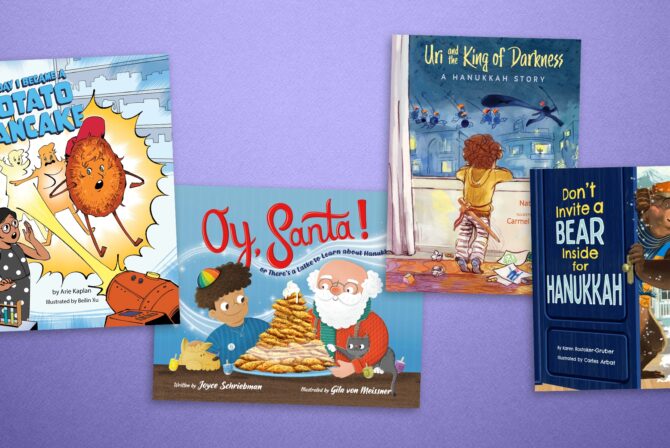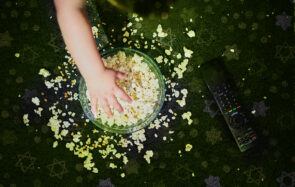This time of year is more complicated for me than I’d like. I’m Jewish and my husband isn’t. That’s a pretty common story in the US. It’s more common that not, actually; according to the 2013 Pew Research Center’s Religion & Public Life Project, the intermarriage rate among American Jews is 58 percent
Here’s the tricky bit: This is my second marriage, I have two kids from my first marriage, and so does my husband. We were married in June of 2016, which is also the year that all six of us moved into a new house together. We went into this with our eyes open, and certainly expected there would be adjustments both big and small. But it’s not easy to find good advice about how to manage differences in blended families, let alone about different religions in a blended family with four kids.
My kids have been raised Jewish by me and my now ex-husband, and we’re all involved in our Reform temple. My kids have attended religious school since they were in kindergarten, and my older daughter is celebrating her bat mitzvah this spring. We have Shabbat dinner at home every Friday night, have a Passover seder every year, and attend High Holiday services.
My girls are 10 and 12 now, and they understand that being Jewish is not just about what religion you are — it’s also about being part of a minority religion and cultural/ethnic group in the US. They don’t feel left out because they don’t celebrate Christmas, but they are aware that most people assume everyone does.
When my girls were little, and I was in my first marriage, we were among the only family I knew who didn’t celebrate Christmas at all. We liked spending December 25th at our local Jewish Community Center, which had all kinds of free family activities that day. I enjoyed being in that enclave of non-Christmas folk, both for myself and for my Jewish kids.
A few years after my first husband and I split up, he got into a serious relationship with a woman who isn’t Jewish and later married her. I remember my younger daughter, who was in kindergarten, asked me if she was now a “Chrismukkah” person. She knew some kids at school who called themselves that because they had one Jewish parent and one Christian parent. I cringed inwardly, fearing that she was somehow losing part of her identity, but tried my hardest not to show it as I answered her the best I could. “No, Pook, both your mom and your dad are Jewish, so you’re Jewish too, and we celebrate Jewish holidays.”
Of course, when we got divorced, I knew that there would eventually be new significant others in our lives, which is never simple. But I wasn’t at all emotionally prepared to navigate Christmas suddenly being in my kids’ lives. There were lots of suggestions from my friends about “Hanukkah bushes” or about decorating Christmas trees with blue and white ornaments, but none of that felt right to me. There’s something about equating the two holidays that just makes me bristle, because in essence, they have nothing to do with each other. They just happen to overlap some years, and both involve giving presents.
Now I’m married to a wonderful man who isn’t Jewish, and I’ve gotten two awesome step-kids as a bonus. And now in both of my girls’ houses Christmas and Hanukkah are celebrated by their step-families. The winter after getting married, my husband and I had several thorough discussions about how to approach the holidays. He understands why I resist the melding of the two holidays, and in fact feels similarly. We are a family with differences that we can learn from, and that we hope can make us all grow closer.
So instead of blending Hanukkah and Christmas, we instead choose to decorate separate rooms in our house for the two separate holidays. There is a Christmas tree with presents for my husband and his two kids in our living room, as well as three stockings hung on our mantle. Our dining room is decked out with Happy Hanukkah banners, an electric menorah in the window, a string of dreidel lights, and two or three menorahs for lighting each of the eight nights.
The kids happily watch each other open gifts on their respective holidays, and we pick one night of Hanukkah when we light candles and eat latkes together. We have found that we can have family togetherness and can celebrate family differences at the same time.







